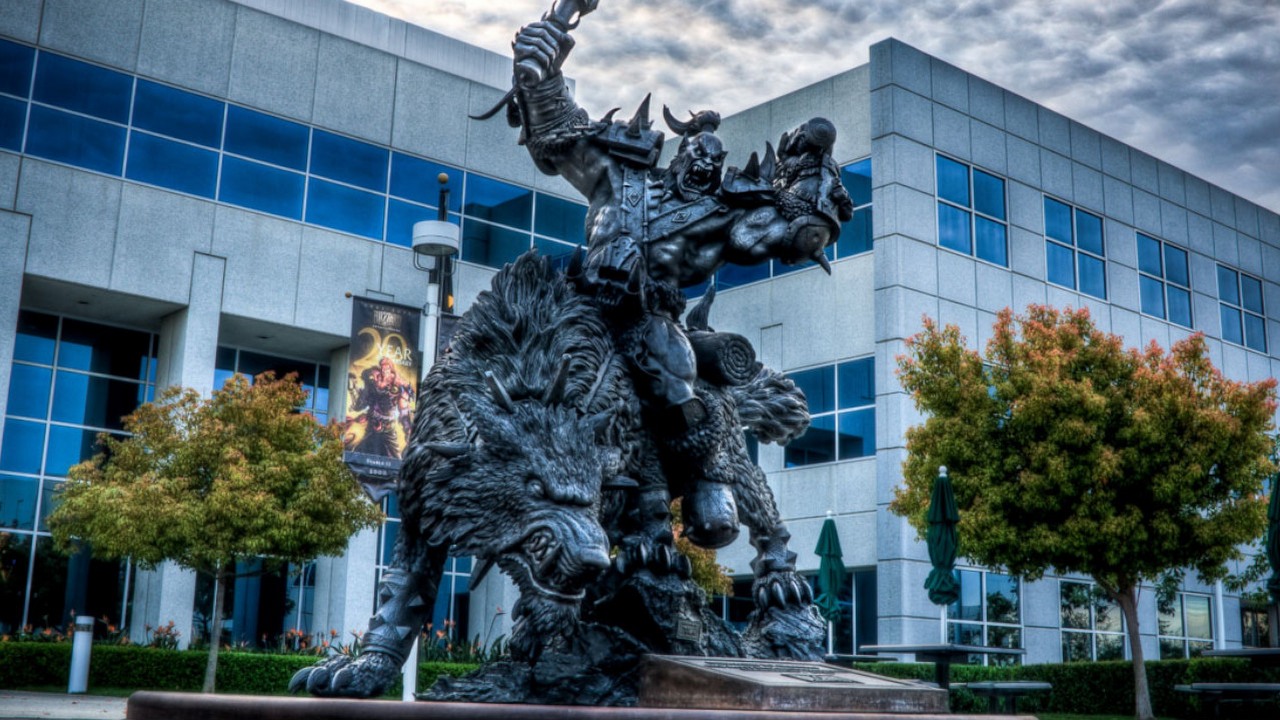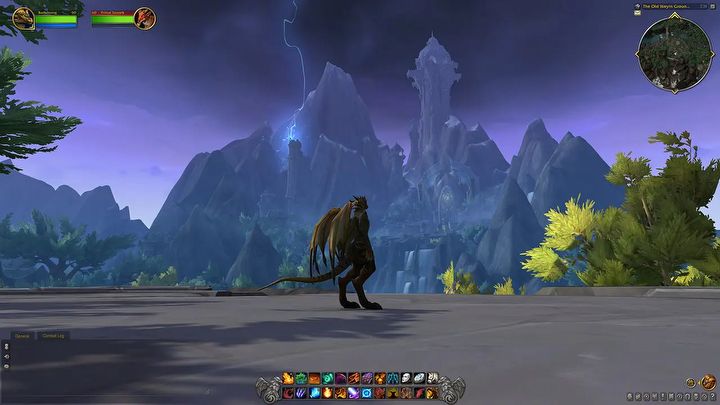Thousands of Players Lost Their Favorite MMORPG - Report Reveals Truth About Blizzard's Failure in China
The severance of its partnership with Chinese publisher NetEase and the withdrawal of Activision Blizzard's games from the local market have made waves through the gaming community. A New York Times report sheds some light on the affair.

This January the vast majority of games from Blizzard disappeared from the Chinese market. The event was the result of a dispute between the American giant and NetEase, which distributed Activision Blizzard's products in China.
The turbulent breakup left thousands of disgruntled Chinese gamers in its wake, as well as a whole host of questions about the reasons behind it. Reports published recently by New York Times provide some suggestions as well as answers.
A bone of contention
According to the NYT article, one of the major events that put a final dent in the two companies' partnership was the October talks on further cooperation. According to witness testimony both sides were said to have left the meeting with extremely different interpretations of what was said at the meeting. As the text reads:
"[...] What NetEase executives saw as a conciliatory gesture was perceived by Activision executives as a threat. A month later, the companies broke off talks altogether."
The volatile topic was to turn out to be the Chinese government's growing interest in the video game market and the resulting regulations imposed on the private sector by the Chinese Communist Party. The matter was not helped by the fact that the country's governing bodies were looking with increasing suspicion at companies linked to foreign capital.
NetEase had on this occasion applied to the U.S. giant with a request to lend some required information and documents (such as annual revenue), which, according to the Chinese company, were necessary to prepare for the new market.
- The request was turned down by Activision Blizzard.
- Adding fuel to the fire was the fact that NetEase was said to have tried to coerce the publisher into a new agreement, under which the Chinese company would have a full publishing license.
- According to the Asian company, such a ploy would have diverted the attention of the CCP from a company with a close relationship with foreign capital.
- Activision Blizzard once again rejected the offer, considering the arguments cited as excuses to force a better deal for the Chinese.
Previous problems
Problems with the new government regulations and verbal disagreements, however, were not the beginning of the frictions between Activision Blizzard and NetEase.
Also proving problematic was the controversial CEO of the US company - Bobby Kotick. His displeasure was sparked by an investment in which NetEase was to financially support Bungie. The devs of Destiny failed to meet the deadlines imposed by their contract with Activision at the time. According to Kotick, financial support from the Chinese company was to expose his company to additional delays and losses.
The stroke that broke the camel's back was a conversation between the CEOs of the two companies regarding the possible acquisition of Activision Blizzard by Microsoft.. As reported by informants on the NYT:
"[...] Kotick and William Ding, NetEase's chief executive, discussed how multiple antitrust authorities around the world were reviewing Microsoft's $70 billion deal to buy Activision [...] At one point in the conversation, which was conducted through translators, Activision executives felt that Mr. Ding was threatening Mr. Kotick. The Chinese government was analyzing the Microsoft acquisition, and executives recalled that Ding had assured that NetEase could get the government to block or support the deal depending on the outcome of the licensing discussion [...]."
NetEase representatives, however, denied that the statements in question were a threat directed toward Activision Blizzard:
"The idea was that if Activision did not go through with the licensing agreement, Microsoft would face the same regulatory hurdles when it acquired the company."
Bitter parting
Despite the dramatic end to the long-running war between the two giant companies for Chinese gamers, in an official press release, Activision's vice president mentioned the "very positive" experience of being in the Chinese market, while adding:
"While it is true that the partnership took a surprising and disturbing turn, it is important to recognize that this conclusion was an anomaly," said Michael Lee, vice president of Activision Blizzard
NetEase spokesman only mentions that the company has moved on, adding briefly:
"We suggest Activision Blizzard do the same."
Further plans by the U.S. giant to solve the publishing problem in China remain a mystery. According to estimates, the partnership was worth about $750 million in annual revenues.
As reported by industry websites, the withdrawal of Blizzard's games from distribution was felt by nearly 3 million Chinese gamers. In the case of just World of Warcraft it's about 100,000 people. Teams and esports leagues associated with, for example, the scene of Overwatch 2 are also facing a big challenge.
0

Author: Adam Celarek
He has been interested in video games since an early age. He graduated film studies and new media, and defended his thesis on ludology. He started working at Gamepressure in early 2023. He is primarily a guide writer. Enthusiast of RPGs, unconventional indie games and competitive e-sports titles (mainly brawlers and MOBAs). In addition to games, he's also interested in table-top role-playing games and collectible card games. A fan of old-school technology and retro style!
Latest News
- End of remote work and 60 hours a week. Demo of Naughty Dog's new game was born amid a crunch atmosphere
- She's the new Lara Croft, but she still lives in fear. Trauma after Perfect Dark changed the actress' approach to the industry
- „A lot has become lost in translation.” Swen Vincke suggests that the scandal surrounding Divinity is a big misunderstanding
- Stuck in development limbo for years, ARK 2 is now planned for 2028
- Few people know about it, but it's an RPG mixing Dark Souls and NieR that has received excellent reviews on Steam, and its first DLC will be released soon



